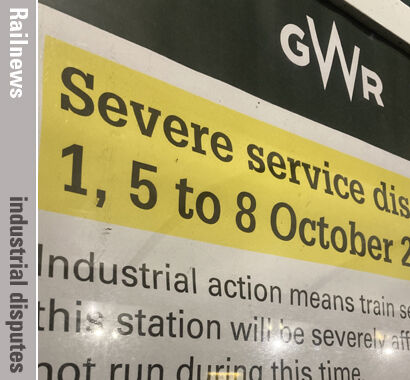The Rail Delivery Group has refused a demand from the RMT for a rail industry summit, to be attended by the government, employers and the rail unions.
The union said it wanted to resolve the ‘toxic rail dispute’ which began a year ago. The RMT launched a national strike ballot on 26 April 2022, in which a majority of workers at rail operators and Network Rail voted for industrial action.
Since the dispute began the RMT has since reached agreement with Network Rail but a dispute with most English train operators over pay and conditions has continued, most recently resulting in walkouts by ASLEF members on Friday of last week and a further stoppage by RMT members on Saturday. More strikes have been called by ASLEF for 31 May and 3 June, while ASLEF also staged an overtime ban on Saturday. This is continuing from today until 20 May, and again on 1 June.
On the eve of the latest strikes, RMT general secretary Mick Lynch wrote to transport secretary Mark Harper, saying: ‘While we have reached agreements for rail workers with the Scottish and Welsh governments your government’s management of the dispute is set to plunge our railways into even more and worse disruption for months to come.
‘Instead of bringing management and unions together, you are driving a deeper wedge between them.
‘Even the representatives of all the train opening companies have now said your Minimum Services Strikes legislation could mean trade unions increasingly vote to take strike action more frequently
‘As with the change in direction by the government in taking the TransPennine Express contact into public ownership there must also be a fresh approach to the rail dispute. The government can no longer stick its head in the stand and must instead get a grip and reset the relationships.’
No reply has yet been published from the transport secretary, but the Rail Delivery Group has issued a statement which says: ‘While we are always open to dialogue, the only summit the RMT need is between its negotiating team and its executive committee. Time and time again they have blocked the deal negotiated line by line by its top team from going out to its membership for a vote, with frontline losing out on a pay rise of up to 13 per cent as a result. It’s time the union leadership and executive finally agreed on what they want from these negotiations.’


